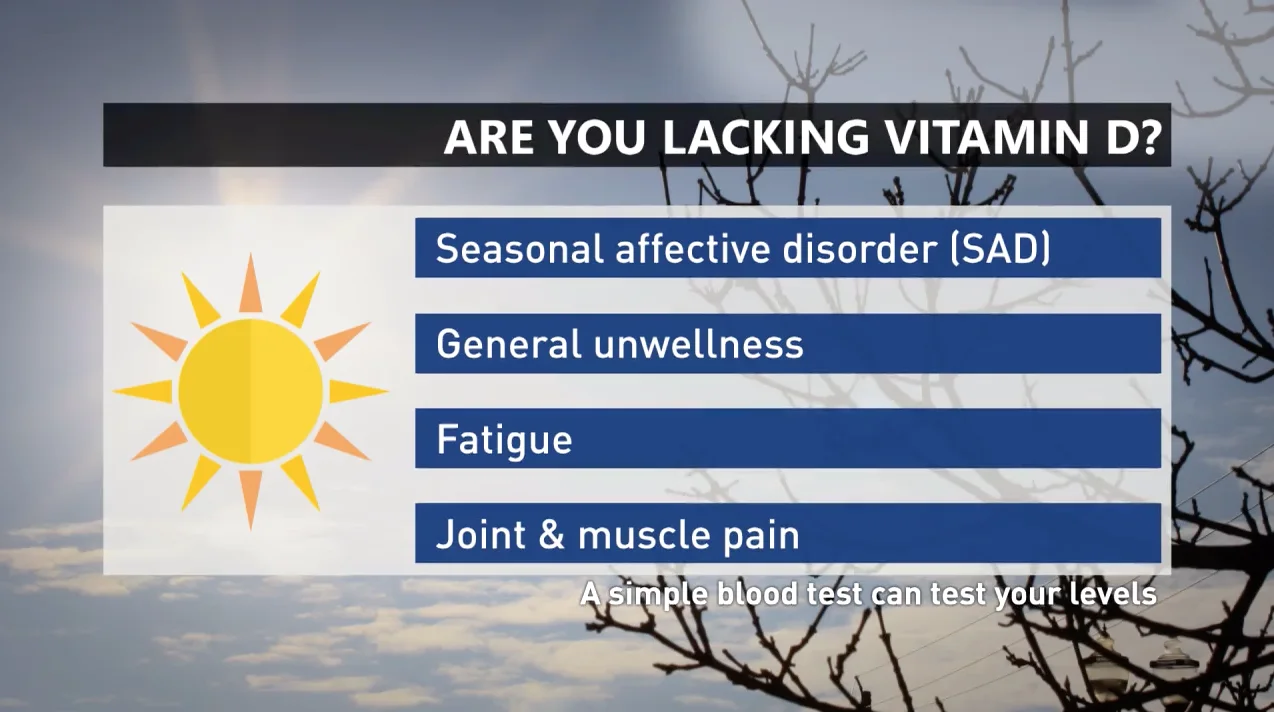
Lack of vitamin D and severe COVID-19 cases: Is there a link?
Recent studies have found a link between vitamin D and COVID-19, suggesting some people are deficient in the micronutrient and could experience serious health complications.
As the coronavirus pandemic unfolds, health experts are finding interesting connections between low vitamin D levels and severe COVID-19 symptoms.
Researchers out of Northwestern University in Illinois looked at countries with high COVID mortality rates, such as Italy, Spain and the UK., and found, on average, patients had lower levels of vitamin D in these counties when compared to patients in other areas of the world that were less affected.
Another study done in the UK backed this claim. Researchers there found that Finland, Norway, Denmark, and Sweden had higher levels of vitamin D and lower rates of COVID-19.
Vitamin D is a common supplement many people take due to insufficient levels. Now many are paying even more attention to the recommended dose.
“Vitamin D has been shown to have different roles,” says Dr.Montano-Loza, the Associate Professor of Medicine at the University of Alberta. “Specifically, it has an immunomodulatory role, that in one way helps our immune system to fight infections, [and] at the same time, it also has an anti-inflammatory role. So that means it regulates the immune response, so we do not have a state of acute inflammation.”
VITAMIN D CAN PREVENT A 'CYTOKINE STORM'
Severe inflammation has been noticed in many patients with COVID-19. Doctors believe that low vitamin D levels can trigger a cytokine storm in a patient fighting a virus.
“A cytokine storm can happen in some patients who have COVID-19” explains Dr. Montano-Loza. “It’s an acute state of inflammation -- it's basically an excessive release of molecules that exacerbates inflammation. This can then trigger several organ dysfunctions. These patients are in the hospital with advanced support.”
When vitamin D levels are normal, the presence of this vitamin can regulate the body's response to a virus.
RESEARCHERS EAGER TO START STUDY IN CANADA
Since researchers are keen on the idea of low vitamin D levels being a problem, it's now time to test regulating levels in patients who are deficient and are suffering from COVID-19. This type of testing is scheduled to happen in Alberta.
“In Alberta, we are going to measure vitamin D levels in all patients who have infections with COVID-19,” says Dr. Montano-Loza. “In the patients who have low vitamin D levels in their blood, we are going to give them a higher dose. We are aiming to normalize the vitamin D level in a short period of time -- between one to two weeks. We will be monitoring if this has a positive impact on clinical outcomes.”
In order to complete the study, the university needs at least 70 patients that fit their criteria. The medical team at the University of Alberta hopes to have preliminary results by fall.
SHOULD I BE TAKING A VITAMIN D SUPPLEMENT?
For Canadians looking to boost their own vitamin D levels Dr. Montano-Loza suggests the following:
“I think all Canadians should be taking a vitamin D supplement. The current recommendation is to take from 600-800 international units every day. I think during a situation like this one, during a pandemic, I think it is a good idea to increase to 1000-2000 international units a day, no more than that.”

While extremely rare, people should be aware that too much vitamin D can cause calcium build up in the blood -- this is known as hypercalcemia. To get to this point, a person would need to have an intake of 60,000 IU daily for several months.
Be sure to consult with your doctor before taking any vitamins. Some supplements may interact with medications that you're taking.
Thumbnail image courtesy of Getty Images
